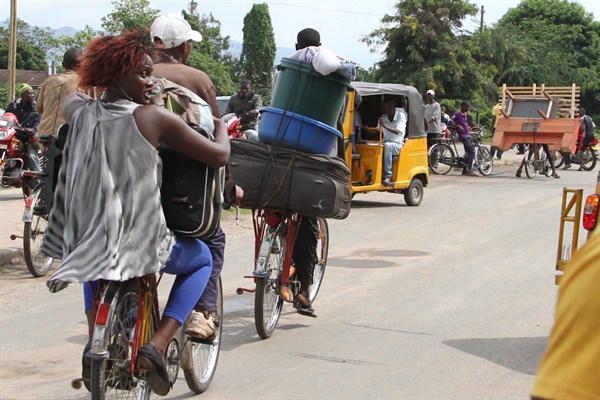It is hard to imagine that any crisis could do more harm to the United Nations than the Syrian war. But mass bloodshed in Burundi, whose long-brewing meltdown has become the latest victim of Russia’s diplomatic standoff with the West at the U.N., could yet achieve this unenviable feat.
Diplomats and conflict specialists are, to put it mildly, in an unmitigated panic over Burundi. This April, the country’s president, Pierre Nkurunziza, announced that he would sidestep constitutional limits to run for a third term. Despite an abortive coup in May, ongoing violence and criticism from the U.S., Nkurunziza went on to win re-election in August polls widely considered neither fair nor trustworthy. Burundi has remained on the verge of implosion ever since. Last week, the president’s allies effectively called for a mass killing of his foes. The International Crisis Group has warned of parallels to the dawn of the 1994 Rwandan genocide.
This is an exceptionally predictable crisis. Although Burundi has not occupied international headlines in recent years—even experts on Central Africa have tended to prioritize the Democratic Republic of Congo (DRC) and Central African Republic (CAR)—it has been no secret that the country has been headed for disaster for years. It never fully recovered from a decade-long civil war that began in 1993 and claimed at least 300,000 lives. The U.N. sent peacekeepers to stabilize the country in 2004, but Nkurunziza turfed them out in 2006, suspecting them of favoring his opponents. The government has since repeatedly expelled senior U.N. envoys, even though Secretary-General Ban Ki-moon and others have done their best to calm Nkurunziza.

